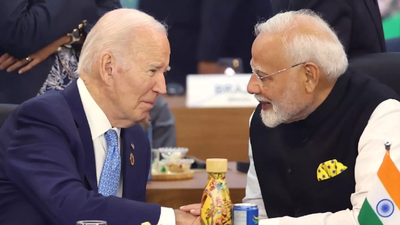Even slight penetration is rape, consent irrelevant for minors: HC | India News

NAGPUR: The Nagpur bench of Bombay high court recently ruled that even the slightest penetration constitutes rape and that consent is irrelevant when the survivor is a minor, reaffirming the absolute nature of protection under the Protection of Children from Sexual Offences (Pocso) Act.Dismissing the appeal of a 38-year-old driver from Hinganghat in Wardha district, the court upheld his conviction and 10-year sentence for attempting to commit aggravated penetrative sexual assault on two girls aged five and six. Justice Nivedita Mehta, who authored the judgment, held that ‘the act of rape or aggravated penetrative sexual assault stands complete as soon as the accused inserts any body part into the survivor’s private parts — the extent of penetration being immaterial in law’.
The court found that the accused lured the children with guavas, showed them obscene videos, and attempted to assault them sexually. He was convicted under section 6 of the Pocso Act and section 376(2)(i) read with Section 511 of the IPC and fined Rs50,000.Justice Mehta observed that the prosecution “proved its foundational facts beyond a reasonable doubt,” relying on consistent and credible testimonies of the survivors and their mother, supported by medical and forensic evidence. “Simply because, in the medical examination conducted on the survivor after more than 15 days, no injuries were found on her private parts due to her tender age, the alleged act committed by the accused cannot be termed as an ‘attempt’ to discard the otherwise reliable and trustworthy testimony,” she said.The bench rejected the petitioner’s claim of false implication over alleged family enmity, noting the absence of any corroborative evidence. It also accepted the delay in filing the FIR, stating it was reasonable given the survivors’ young age and the threats issued by the accused.The HC further corrected the trial court’s misapplication of the amended Pocso sentencing provisions introduced in August 2019 — five years after the crime, which occurred on Feb 19, 2014. Justice Mehta clarified that punishment must be governed by the law prevailing at the time of the offence. “The trial court’s reliance on the amended provision of section 6, prescribing a minimum sentence of 20 years, as well as its invocation of section 18 of the Pocso Act for the purpose of calculating sentence, is legally erroneous,” she stated. However, the bench affirmed that the 10-year rigorous imprisonment imposed was consistent with the minimum punishment prescribed by the unamended statute and required no modification.




